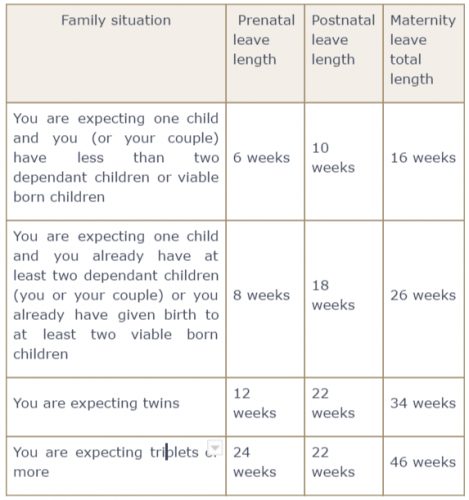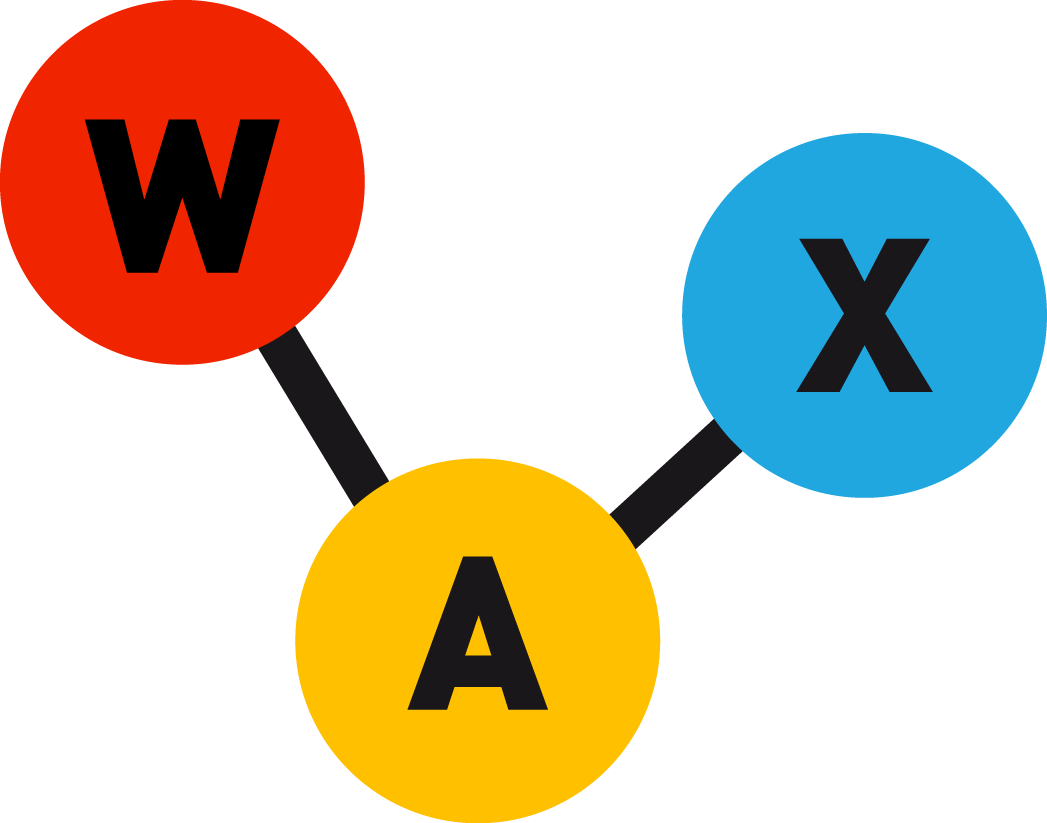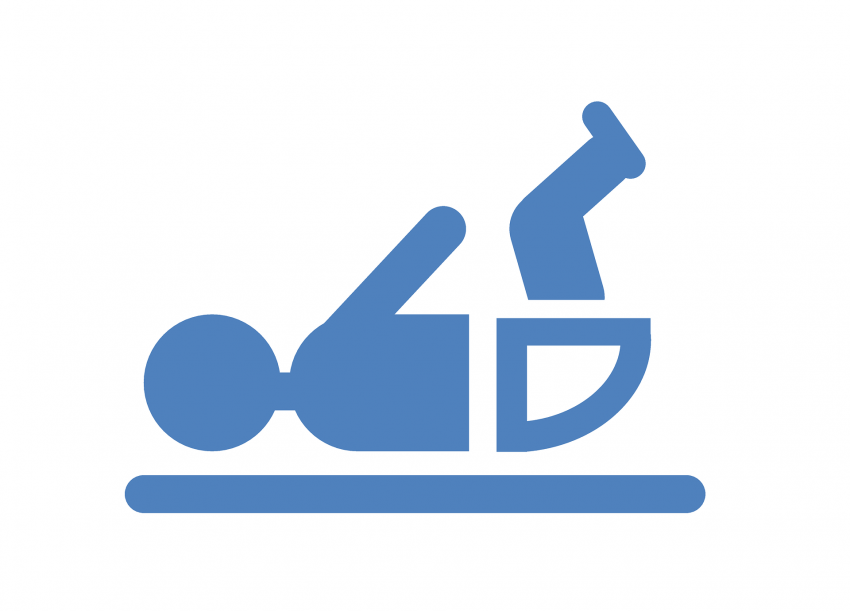#KnowYourRights
A little historic reminder of the maternity leave in France:
The maternity leave appears in 1909 and has only 8 weeks not compensated. In 1980, it reaches its actual length of time, that is to say 16 weeks.
The prenatal and postnatal duration depends on the number of children the woman is expecting and the number of dependent children the parents already have. The website ameli.fr, reference website about pregnancy questions and future mothers’ rights, proposes a table indicating all the possible durations:

Source: ameli.fr http://bit.ly/1kQ1JHg
All the salaried women had to wait until 1970 to obtain the right of being paid during their maternity leave. The daily compensation amount is calculated on the base of the salary earned during the three last months worked, with a monthly limit of 3218,00 euros (at January the 1rst 2016). The mamixum amount of the maternity daily compensation is 83,58 euros (at January the 1rst 2016).
And what about the father?
France is not a really good pupil compared to other countries by according only 3 days at the birth and 11 compensated paternity leave. For example, Canada offers 35 weeks and Italy 24 weeks!
Here is a little overview of our neightbouring countries and more distant countries in order to observe the different policies applicated:
- United Kingdom: 52 weeks of maternity leave, during which the mother can receive
- either the Statutory Maternity Pay – SMP, paid by her employer and representing 90% of her average salary the 6 first weeks of her maternity leave, then a fixed amount is granted for the remainder leave,
- or the Maternity Allowance – MA, paid by the State and representing 90% of her weekly average salary or a fixed amount during 39 weeks.
The father has a 2 weeks compensated paternity leave. He earns 90% of his salary during his leave.
- Poland: 20 weeks of maternity leave, generally taken after the delivery. Indeed, the mother has the obligation to take 14 weeks of maternity leave after giving birth. There is a positive point, the mother can give to the father the days or weeks she doesn’t take ! During her maternity leave, the mother receives some compensation equalt to her last twelve months average salary.
- Germany: 6 weeks of prenatal leave and 8 weeks of postnatal leave. The mother perceives a daily compensation of 13 euros maximum, if she is affiliated to a health insurance public service and holding a contract of employment at the beginning of her prenatal leave. Her employer can complete the daily compensation amount if her daily average net salary exceeds 13 euros.
- Bulgaria: a little more than 58 weeks of maternity leave! The mother has to take 6 weeks before the birth. During this period she receives 90% of her daily average salary, provided that she worked at least 12 months before her maternity leave.
- Spain: 16 weeks of maternity leave, of which 6 consecutive weeks have to be taken after the delivery. The mother receives compensations equal to 100% of her last month salary. She can transfer a part of her leave to the father, if she respects the six postnatal weeks.
- Sweden: the mother and the father have 8 compensated parental leave each for each child! On the 16 total months, 13 are paid 80% of their last salary, with a maximum amount of 443 000 Swedish crown (51100€) per year in 2016.
- Chile: in September 2011, a law extended the maternity leave length from 3 to 6 months. Six prenatal weeks are added to these 6 months, which gives 18 weeks of maternity leave paid 100% the mother’s salary. Since 2011, the mother can transfer 6 weeks of her leave to the father, who had only 5 days until then.
To complete this little overview, we recomend the excellent infographic made by the Women&Tech organisation, available on their website! Women&Tech highlights women’s stories working in the tech field. The organisation is very active on Twitter!







COMMENTAIRES